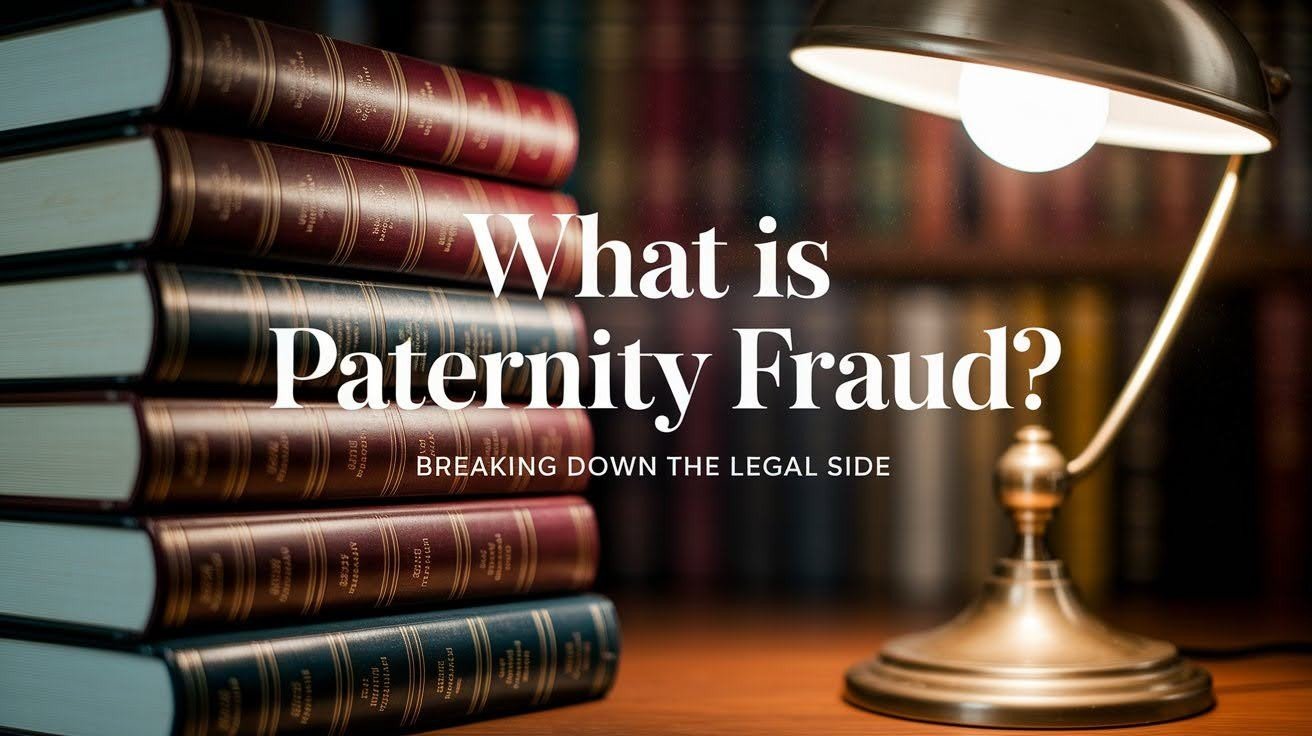Trust forms the basis of each and every family. But what is it that happens when trust breaks in the most hurtful way that is possible?
What is paternity fraud? It occurs in instances when a woman lies knowingly to a man regarding that child’s biological father. This deception can last for many years, and it creates quite deep emotional wounds along with some serious legal problems.
Though it seems like a tiny amount, it impacts many families yearly. Intense emotional pain is possible for everyone involved. This hurt may be too much.
Each has its unique laws. Laws also can vary between states within the same country. Some places offer legal help for victims, though other places offer little. In finding a solution begins the comprehension of your own rights.
What Is Paternity Fraud?
What is paternity fraud in legal terms? It means a woman deliberately misleads a man about being the biological father of her child when she knows or suspects he is not. This goes beyond simple mistakes or paternity uncertainty.
The keyword here is “knowingly.” For fraud to exist, the woman must have intentionally lied or hidden the truth. This is different from cases where a woman genuinely believes a man is the father but turns out to be wrong. Intent matters a lot in legal cases.
Common situations include affairs during marriage, relationships with multiple partners, or cases where a woman knows the timing doesn’t match but stays quiet. These situations create what is paternity fraud at its core – a deliberate deception that can last for years and cause serious harm to all parties involved.
Is Paternity Fraud a Crime?
In most places around the world, what is paternity fraud, legally speaking? It’s usually treated as a civil matter, not a criminal one. This means you won’t go to jail for it, but you might face a lawsuit.
Countries like the UK, US, and Canada generally don’t treat this as a crime. Instead, it falls under civil law, where the focus is on making things right rather than punishment. The main legal tool is called “tort of deceit,” which allows victims to sue for damages.
However, there’s one important exception. If someone lies on official government papers like birth certificates, that can be a criminal act. But the paternity fraud itself – the lying about who the father is – usually isn’t enough for criminal charges in most places.
Legal Consequences and Remedies
When someone becomes a victim of paternity fraud, they have several legal options available to them.
The most common legal action is a civil lawsuit based on the tort of deceit. To win this type of case, you need to prove several things:
- The woman made a false statement about paternity
- She knew the statement was false, or didn’t care if it was true
- She intended for the man to rely on this false information
- The man did rely on it and suffered harm as a result
- The harm caused real damages that can be measured
Courts can award different types of compensation. This might include money for emotional distress, financial losses from raising a child who isn’t biologically yours, and even costs for family trips or meals. However, getting back all the money spent on child-rearing is often difficult.
Property settlements during divorce can also be affected. If paternity fraud comes to light during divorce proceedings, it might change how assets get divided. Most places have a six-year time limit for filing these claims, starting from when you found out about the fraud.
International Legal Approaches
Different countries handle what is paternity fraud in their own ways, creating a patchwork of legal responses around the world.
The United Kingdom treats this purely as a civil matter. Several notable cases have resulted in compensation awards, though the amounts vary widely. British courts focus on proving that the deception caused real financial and emotional harm to the victim.
The United States has a state-by-state approach, which means laws can be very different depending on where you live. Some states have passed new laws making it easier to challenge paternity, while others stick to older, more restrictive rules. This creates confusion for people trying to understand their rights.
Australia has perhaps the most victim-friendly approach. Since 1989, men have been able to recover child support payments they made based on false paternity claims. Canada takes a more cautious approach, with courts often focusing more on protecting the child’s interests than helping the deceived father.
Practical Steps and DNA Testing
If you suspect paternity fraud in your situation, DNA testing is usually the first step toward getting answers.
There are two main types of tests to consider:
- Court-approved testing: These tests meet legal standards and can be used as evidence in court
- Home testing kits: Cheaper and private, but usually not accepted in legal proceedings
- Chain of custody testing: Required for legal cases, ensures samples aren’t tampered with
- Prenatal testing: Available during pregnancy, but carries some medical risks
The timing of testing matters a lot. Early testing can prevent years of emotional and financial investment in a child who might not be biologically yours. However, testing also raises difficult questions about trust and relationships.
Legal requirements vary by location. Some places require consent from all parties, while others allow testing with just one parent’s permission. Privacy laws also play a role in how test results can be used and shared.
Conclusion
Paternity fraud breaks families as well as trust, which can destroy them. Often hurting people to a deep degree, it exceeds any court case’s fixing power. Everyone involved is left with lasting scars afterward. This deceit has created much damage.
Paternity fraud laws vary everywhere. Some places aid victims to a greater extent. Because of how many rules can change from one place to another, a lawyer is needed who knows all of the local laws.
When thinking about what’s best for the children, courts try to protect fathers who were lied to. This creates a set of tough choices; however, not everyone is always going to be happy.
Address this difficulty with someone else. A good family lawyer can explain your options while helping with legal steps locally. It is known that these sensitive cases are to be handled properly.
Frequently Asked Questions
Can You Get Compensation for Paternity Fraud?
Yes, successful cases have resulted in awards ranging from thousands to hundreds of thousands of dollars, depending on factors like financial losses, emotional distress, and duration of deception.
How Long Do You Have to File a Paternity Fraud Claim?
Most jurisdictions impose a 6-year statute of limitations from the date of discovery, though this varies by location and specific circumstances of the case.
What Evidence Is Needed to Prove Paternity Fraud?
Courts typically require DNA test results, documentation of the deception, financial records showing support payments, and evidence that the woman knew the truth.
Does Paternity Fraud Affect Child Support Obligations?
Courts may terminate future support obligations, but often won’t require repayment of past support, prioritizing the child’s welfare over the father’s financial recovery.
Can Paternity Fraud Claims Affect Custody Arrangements?
While fraud may influence custody decisions, courts primarily focus on the child’s best interests rather than punishing the deceptive parent through custody restrictions.










